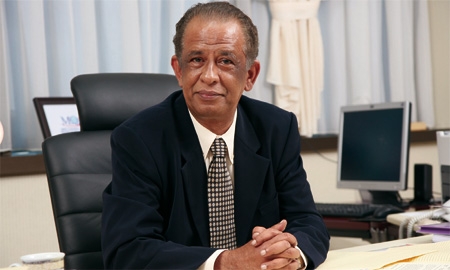Malaysia’s plan of becoming a fully developed nation by the year 2020 (Vision 2020), will be greatly dependent on the success of its educational reforms and this has been reflected through its high appropriation, rising from 20.68% of operating expenditure in 2000 to near 25% in the past few years.
As part of the government’s 10th Malaysian plan, this increase in educational standards will be a key catalyst for greater economic growth and increase the attractiveness of the nation for foreign direct investment.
One of the key factors being introduced into education is industry-based learning (IBL), a process by which higher learning institutes can join forces with various corporations, particularly within engineering, research and development and ICT, in order to allow a more comprehensive education. A number of universities, including Universiti Teknologi Petronas and Swinburne University of Technology Sarawak, offer IBL as a mandatory element in some of their degree programs.
“Our target is to ensure that 75% of our graduates after six months are either employed or have furthered their studies,” stated Minister of Higher Education for Malaysia Dato’ Seri Mohamed Khaled bin Nordin at the launch of the Ministry’s most recent initiative, MyBrain15, which is designed to encourage students to continue their education at graduate level in key areas that will support the country’s development plan. This will simultaneously assist in retaining human capital as well as develop the nation’s capacity for creating higher income. The current expectation is to create a further 60,000 Ph.D graduates by 2015.
| ‘OUM AND ITS OTHER ENTITIES ALSO PROVIDE CONSULTANCY SERVICES INCLUDING INTERNATIONAL CAPACITY-BUILDING PROGRAMS TO DEVELOPING COUNTRIES’ |
Malaysia is also concentrating on increasing research and development. In recent years, it has become one of the global leaders in patency and certificates of utility innovation, third only to the U.S. and Japan. “We want to create impact research that has an effect on the global society; we only want research of the highest quality,” states vice chancellor of University of Malaya Y. Bhg Professor Datuk Dr. Ghauth Jasmon.
Prof. Emeritus Tan Sri Anuwar Ali, president and vice chancellor of Open University Malaysia (OUM) adds, “As a university, OUM and its other entities also provide consultancy services, including international capacity-building programs to developing countries. OUM has been participating in Saudi Arabia, Bangladesh, Sri Lanka, Bahrain, Yemen and the Maldives.”
The interaction of culture and environment in order to produce competitive graduates has spurred many international universities to set up satellite campuses here, including Monash University of Australia and the U.K.’s University of Nottingham.
While there are benefits of having the option of foreign qualifications within Malaysia, the real key driving force to ensuring international standards from all centers of learning is their regulation and control by the
Malaysian Qualifications Agency, (
MQA). Since 2005, the MQA has been charged with ensuring quality assurance in both public and private universities. In implementing the Malaysian Qualifications Framework (MQF), MQA CEO Dato’ Syed Ahmad Hussein recently explained that the agency’s main drive has been “becoming a serious facilitator for quality improvement.”

0 COMMENTS